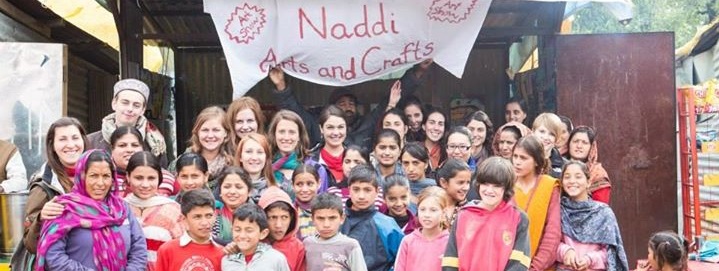 |
| The girls pose for a photo! |
On the back of the success with the Abhowal After School Programme (ASP), Yi Wen, Centre Manager for Dosarka, has managed to form a new Girls Club in the same village! People are seriously starting to question when she has time to sleep!
On the launch of the new club, a really buoyant group of fifteen turned up to mark its inception - from which more than half of the girls attend ASP too. So, there is a nice sense of continuity within the group that Yi Wen has to work with.
Yi Wen's account of the launch is as follows:
We started off a little bit later than scheduled, but as we are in India and we have to take into account IST (Indian Stretchable Time).
Our first stop was Amrit’s house, where we waited for the girls, as well as two of our interns – Natalia (Adampur) and Maria (Janauri), who joined Martha, Julia and myself who all came to support the launch. At Amrit's we had some tea and refreshments, and then went to the village Gurdwara.
With the girls, we started off with a short introduction of the organization, what we do, and what we want to achieve with Girls Club. The girls were listening very closely and were very enthusiastic. Chenni was the translator. Although her English is not perfect, I think she got the essence of what was being said, and relayed this information accordingly.
Afterwards all the girls had to introduce themselves, by saying their name, age and what they liked to do. Although some of the younger ones would repeat what the older girls said, it was clear that the majority of the girls liked to dance. It was a good way for the girls to get to know one another, as well as a perfect opportunity for them to practice their English too.
 |
| Listening intently... |
This was followed by some icebreaker games - name games - where we had to memorize each others names. It was a good way to interact with the girls and to learn each others names in a fast and fun way. It also made us bond more with the girls. They were a bit shy at first, but afterwards they became more confident with speaking English and speaking to the other interns.
We then had a break, which I definitely think is a good thing. To have a small break in the middle of each session is nice, so that the girls will feel that they are in a fun and relaxed environment, where they feel comfortable. We had chai and snacks, and then went to Chenni’s house to meet her family.
After this, we went back to the Gurdwara and did our final activity. We split the girls in five groups, and each of the interns supporting the launch, had to ask the girls what they wanted to become, and how they thought they could achieve it.
Chenni was extremely helpful in translating for us, and she was very diligent. With this activity the girls experienced some troubles in expressing themselves, but I’m confident that with the English classes, they will improve fast.
After this we presented our future dream job to the other girls. And many of them aspired to become a teacher or a nurse. We will keep these documents, and after a month or two, we will take them out again and see if anything has changed, and if so, how and why it has or has not changed.
 |
| The girls saving 'bye' as the interns get the bus :) |
By the end of the launch the girls were extremely excited, and the interns were left very happy with the success of the days proceedings.
Finally, Yi Wen enthused, 'I’m really happy with the results. It was a good introduction and there was a good atmosphere and positive attitudes. We are all looking for the next Girls Club, next week Friday'. Great to hear!














